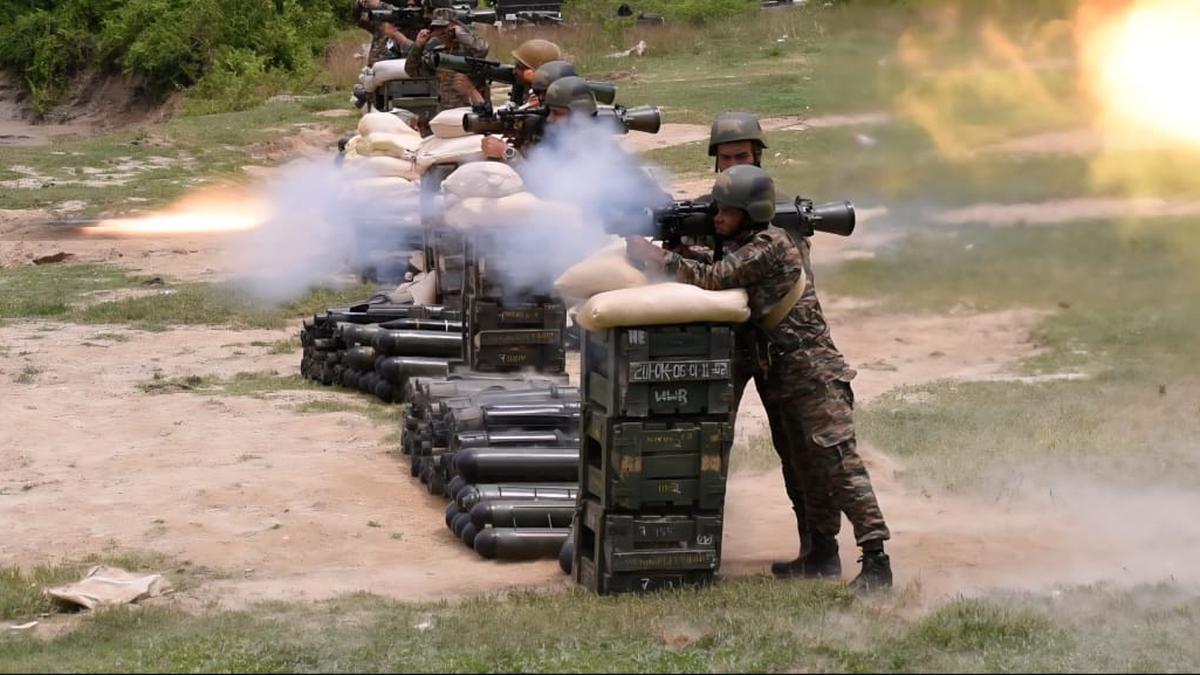ARTICLE AD BOX
Among the key outcomes of Prime Minister Narendra Modi’s Japan visit was an agreement between the space agencies of both countries for an exploration of the Moon’s polar region under the forthcoming Chandrayaan-5 mission.
The two countries also launched an Economic Security Initiative “to promote supply chain resilience” in sectors such as semiconductors, clean energy, telecom, pharmaceuticals, critical minerals as well as new and emerging technologies, as per the Ministry of External Affairs (MEA).
The two PMs expressed serious concern over the situation in the East China Sea and the South China Sea, and without naming China, “reiterated their strong opposition to any unilateral actions that endanger the safety as well as freedom of navigation and overflight, and attempt to change the status quo by force or coercion,” as per the MEA statement.
On the “implementing arrangement” between the Indian Space Research Organisation (ISRO) and the Japan Aerospace Exploration Agency (JAXA), Modi said in a joint press statement with Japanese PM Shigeru Ishiba: “We welcome the collaboration between ISRO and JAXA for the Chandrayaan-5 mission. Our active participation has gone beyond the limits of the earth and will become a symbol of mankind’s progress in space.”
JAXA will launch the Moon mission onboard its H3-24L launch vehicle, carrying the ISRO-made lunar lander, which, in turn, will carry the Japan-made lunar rover.
They also launched the India-Japan Small and Medium Enterprises Forum to strengthen collaboration between Indian and Japanese SMEs, “which are the engines of our respective economies”, as per the MEA.
After the 15th India-Japan Annual Summit, the two PMs made a series of announcements focusing on three areas: bolstering defence and security cooperation, reinforcing economic partnership and deepening people-to-people exchanges.
Story continues below this ad
Important documents in key sectors, including clean energy, critical minerals, digital partnership, space, science and technology and diplomatic training, were also signed.
Both countries will conduct more bilateral exercises between their armed forces, and work on collaboration between special units, besides cooperating in areas such as counter terrorism, peacekeeping operations and cyber defence.
Modi and Ishiba also agreed upon an action plan for India-Japan Human Resource Exchange and Cooperation, which lays out a roadmap for talent mobility and deepening people-to-people ties through exchanges of more than 500,000 personnel in five years, including 50,000 skilled personnel and potential talents from India to Japan.
As part of the India-Japan Economic Security Initiative, the foreign ministries of both countries have been tasked with accelerating policy exchanges on economic security.
Story continues below this ad
While condemning North Korea’s “continued pursuit of nuclear weapons in violation of multiple UNSC”, both Modi and Ishiba “unequivocally and strongly condemned terrorism and violent extremism in all its forms and manifestations, including cross-border terrorism”.
The two leaders called for concerted actions against all UN-listed terrorist groups and entities. Prime Minister Ishiba also noted “with concern” the Pahalgam terror attack carried out by Lashkar-e-Taiba offshoot The Resistance Front, said the MEA statement.
Modi extended an invitation to Ishiba to attend the AI Impact Summit, which India will host in February 2026.



.png)
.png)
.png)

























 English (US) ·
English (US) ·